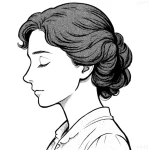“A book must be the ax for the frozen sea within us.”

- July 3, 1883 – June 3, 1924
- Born in the Austro-Hungarian Empire
- Writer, lawyer
table of contents
Quote
“A book must be the ax for the frozen sea within us.”
Explanation
In this powerful metaphor, Franz Kafka expresses the idea that literature—or books—should serve as a tool for breaking through the emotional and intellectual barriers that keep us isolated or disconnected from the deeper parts of ourselves. The “frozen sea” symbolizes the emotional numbness, detachment, or inertia that many people experience in the face of life’s challenges. Kafka suggests that books have the power to shatter this frozen state, acting as an axe that cuts through the coldness of indifference or apathy. This metaphor suggests that reading, or engaging deeply with literature, is not merely for entertainment or intellectual enrichment, but for emotional awakening. A truly transformative book should challenge the reader to confront their own inner world, to reconnect with their suppressed emotions, thoughts, and experiences.
Kafka’s own writing, filled with absurdity, alienation, and existential anguish, often explores the barriers between the self and the world. His protagonists, such as Josef K. in The Trial or Gregor Samsa in The Metamorphosis, struggle against forces beyond their control, leading them into states of disconnection or despair. Kafka’s vision of literature as an “axe” aligns with his understanding of the human condition as one fraught with inner turmoil and emotional isolation. In this sense, a book can be more than just a source of knowledge or escape; it can be a force of liberation that helps the reader break free from the emotional and psychological constraints that limit their ability to fully engage with the world and themselves. Kafka’s works themselves are examples of how writing can confront us with the uncomfortable truths of our existence, forcing us to examine the hidden parts of our consciousness.
In modern times, Kafka’s metaphor speaks to the way literature and art can help us navigate the complexities of the human experience. In an age of information overload and digital distraction, where emotional numbness or disconnection can often feel overwhelming, Kafka’s quote reminds us of the transformative power of books. A good book—whether fiction, poetry, or philosophical text—can serve as a catalyst for emotional or intellectual renewal, encouraging us to examine our own assumptions, confront uncomfortable truths, and reconnect with the deeper parts of ourselves that we might otherwise ignore. It is through literature that we may encounter the world and ourselves in new ways, finding the emotional resonance and meaning that has long been dormant, hidden beneath layers of frozen indifference. Kafka’s quote ultimately calls for a more active, engaged approach to reading, one that seeks not just knowledge, but personal transformation through the written word.
Would you like to share your impressions or related stories about this quote in the comments section?


